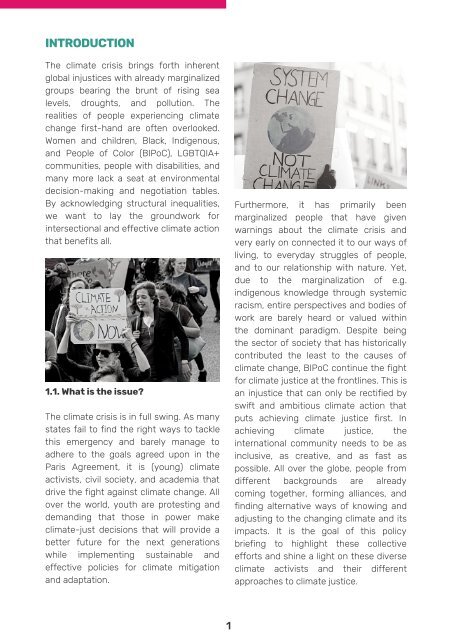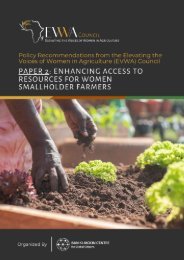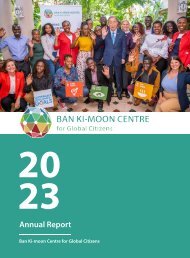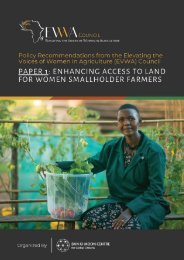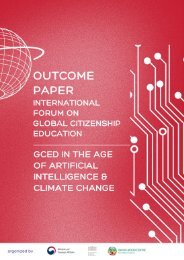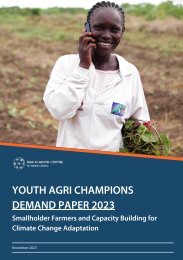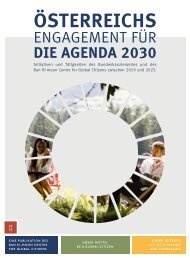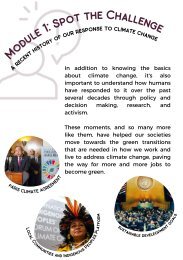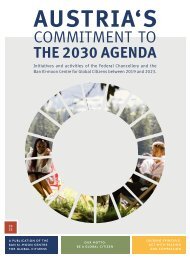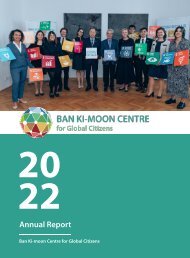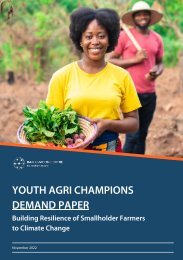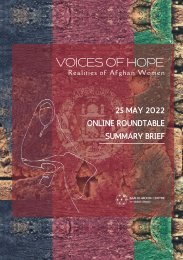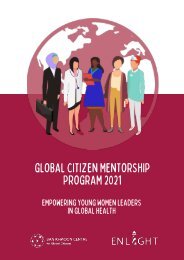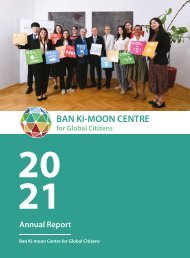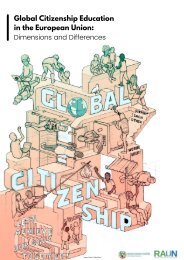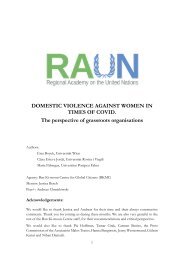Policy Brief - Climate Justice 4 All
You also want an ePaper? Increase the reach of your titles
YUMPU automatically turns print PDFs into web optimized ePapers that Google loves.
INTRODUCTION<br />
The climate crisis brings forth inherent<br />
global injustices with already marginalized<br />
groups bearing the brunt of rising sea<br />
levels, droughts, and pollution. The<br />
realities of people experiencing climate<br />
change first-hand are often overlooked.<br />
Women and children, Black, Indigenous,<br />
and People of Color (BIPoC), LGBTQIA+<br />
communities, people with disabilities, and<br />
many more lack a seat at environmental<br />
decision-making and negotiation tables.<br />
By acknowledging structural inequalities,<br />
we want to lay the groundwork for<br />
intersectional and effective climate action<br />
that benefits all.<br />
1.1. What is the issue?<br />
The climate crisis is in full swing. As many<br />
states fail to find the right ways to tackle<br />
this emergency and barely manage to<br />
adhere to the goals agreed upon in the<br />
Paris Agreement, it is (young) climate<br />
activists, civil society, and academia that<br />
drive the fight against climate change. <strong>All</strong><br />
over the world, youth are protesting and<br />
demanding that those in power make<br />
climate-just decisions that will provide a<br />
better future for the next generations<br />
while implementing sustainable and<br />
effective policies for climate mitigation<br />
and adaptation.<br />
Furthermore, it has primarily been<br />
marginalized people that have given<br />
warnings about the climate crisis and<br />
very early on connected it to our ways of<br />
living, to everyday struggles of people,<br />
and to our relationship with nature. Yet,<br />
due to the marginalization of e.g.<br />
indigenous knowledge through systemic<br />
racism, entire perspectives and bodies of<br />
work are barely heard or valued within<br />
the dominant paradigm. Despite being<br />
the sector of society that has historically<br />
contributed the least to the causes of<br />
climate change, BIPoC continue the fight<br />
for climate justice at the frontlines. This is<br />
an injustice that can only be rectified by<br />
swift and ambitious climate action that<br />
puts achieving climate justice first. In<br />
achieving climate justice, the<br />
international community needs to be as<br />
inclusive, as creative, and as fast as<br />
possible. <strong>All</strong> over the globe, people from<br />
different backgrounds are already<br />
coming together, forming alliances, and<br />
finding alternative ways of knowing and<br />
adjusting to the changing climate and its<br />
impacts. It is the goal of this policy<br />
briefing to highlight these collective<br />
efforts and shine a light on these diverse<br />
climate activists and their different<br />
approaches to climate justice.<br />
1


